‘You'll use the old rubble of past lives to build anew’
The story of how Skipton Baptist Church in Yorkshire transformed an empty row of Victorian cottages next door to its main church building.
It’s a project several years in the making which is not simply about the renewal of bricks and mortar – it has given the church more capacity to meet growing community needs and be more missional
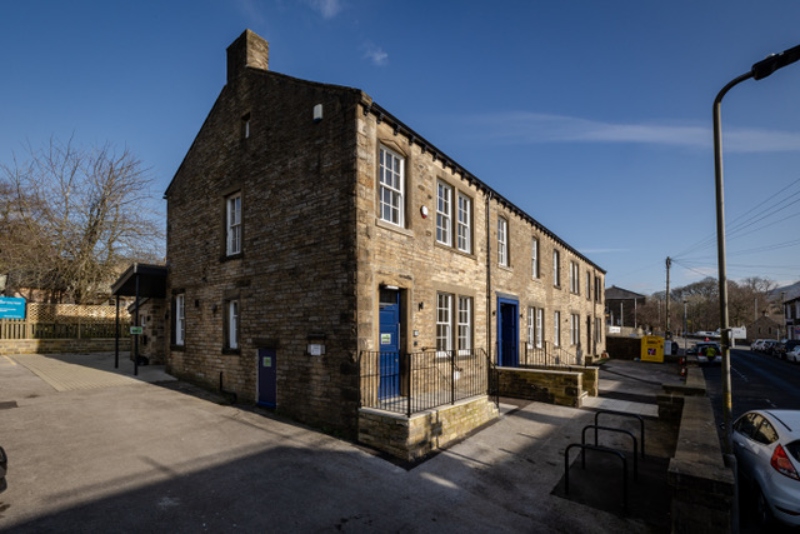
Skipton Baptist Church is based in the bustling Yorkshire market town known as the “Gateway to the Dales”. It dates to 1848 when pioneer itinerant Baptist evangelists Samuel Jones and Robert Hogg preached openly in the market place and expressed their view of Christian baptism. Services began to happen in people’s homes following their message, and by 1861 a chapel opened. The current church building is still situated here.
Allied to a naturally evangelistic outlook, Skipton Baptist Church has become more involved in social action in recent years, reflected in the broadening of its mission statement 'Meet God, Meet Friends, Make Difference'. The clearest investment of this has been the opening of a Christians Against Poverty centre and a foodbank covering the whole of the Craven area.
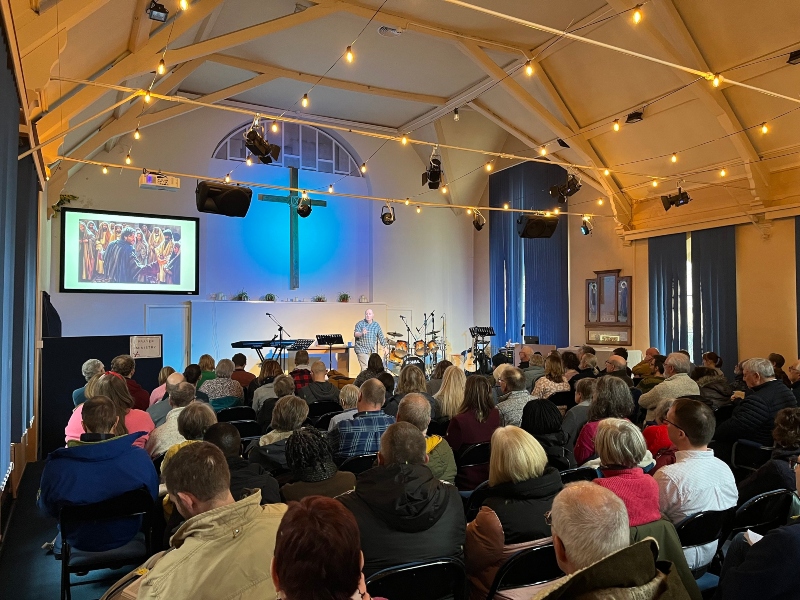 This focus on both conversion and transformation of people’s lives led to the church working at the limits of its building – and pondering how to develop. It had a history of plateauing numbers on a Sunday morning: hitting a peak, and then tailing off. Its rooms were in heavy use by external bookings.
This focus on both conversion and transformation of people’s lives led to the church working at the limits of its building – and pondering how to develop. It had a history of plateauing numbers on a Sunday morning: hitting a peak, and then tailing off. Its rooms were in heavy use by external bookings.
All this meant there was ‘no capacity for missional imagination,’ says minister Phil Burns, who joined the church in 2000.
‘We couldn't imagine what next, because we didn't have a room or a space - it was being lent out or used in some other way.
‘We just felt a little bit hamstrung. We knew there would be better ways of engaging with people.’
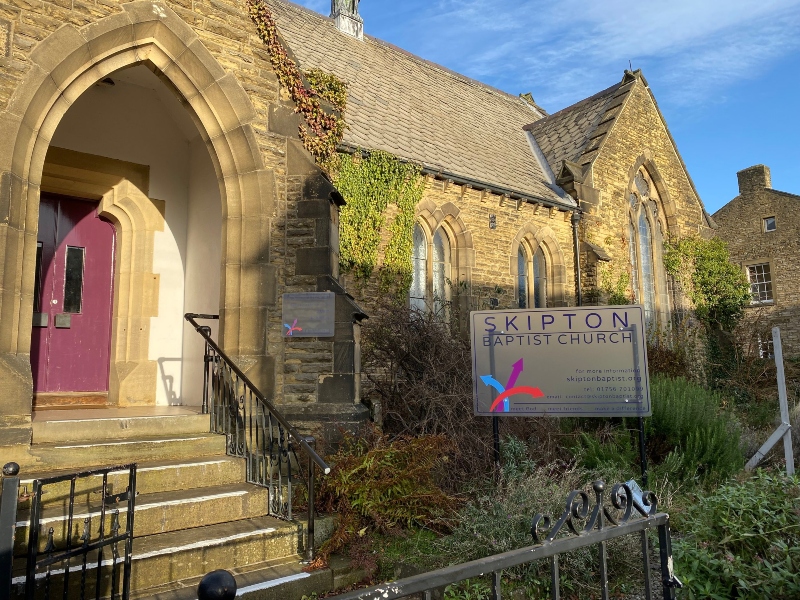 The church explored developing its building – but any plans looked prohibitively costly (‘millions’ says Phil), and there was a chance they wouldn’t even have received planning permission.
The church explored developing its building – but any plans looked prohibitively costly (‘millions’ says Phil), and there was a chance they wouldn’t even have received planning permission.
At this stage focus switched to the row of Victorian cottages next door. The cottages had been a doctor’s surgery and then the offices of a medical recruitment company, before lying vacant for four years.
The leadership team arranged a visit.
‘As we walked around this shell of a building,’ remembers Phil, ‘we just had our imagination stirred.’
From thinking they needed a larger worship space, they realised they were being invited to develop a hub for future activities; a place that was separate to the church building, but still very much the church. A place from which it could develop more ways to meet people’s needs with the love of Jesus.
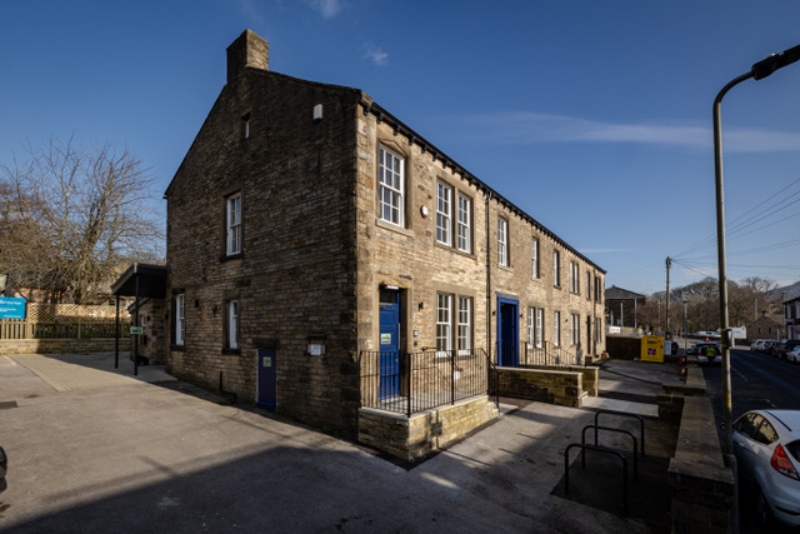 In September 2015 the church took a step of faith to buy the buildings for £565,000, a mix of donations, increased giving and loans. There was no definitive plan as to their ultimate use, more a general vision of reaching out to the community. As such it wasn't a unanimous decision – but to this day many of those who were opposed remain members of the church.
In September 2015 the church took a step of faith to buy the buildings for £565,000, a mix of donations, increased giving and loans. There was no definitive plan as to their ultimate use, more a general vision of reaching out to the community. As such it wasn't a unanimous decision – but to this day many of those who were opposed remain members of the church.
‘We really tried to work hard at the whole concept of disagreeing well, and that these people who were not on board with a vision were actually really important in keeping us accountable,’ says Phil.
The next step was raising the funds for refurbishment, with some members using their skills to help. A portion of the funding came via a Baptist Union Corporation loan, approved in November 2021.
At this time the church was blessed to have a deacon – Martyn Leigh – as project manager. ‘He had a real spiritual vision as well as knowing how to do all the building stuff,’ says Phil. ‘He became a real linchpin.’
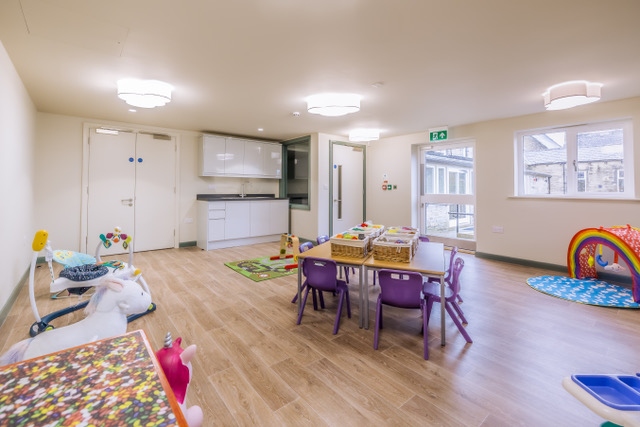 After a delay due to the pandemic, refurbishment and rebuilding began in December 2021.
After a delay due to the pandemic, refurbishment and rebuilding began in December 2021.
The development ran smoothly. ‘It was amazing,’ says Phil. ‘We really soaked it in prayer. Even the builders were saying how much they'd have enjoyed our project, which was really fantastic. And there were zero accidents. On site, all those kinds of little things just felt like God's hand was on it.’
During the project the church were particularly moved by the Message version of Isaiah 58:12:
‘You'll use the old rubble of past lives to build anew, rebuild the foundations from out of your past. You'll be known as those who can fix anything, restore old ruins, rebuild and renovate, make the community liveable again.'
‘Those words just felt really powerful,’ says Phil. ‘The rubble represented what we wanted to see happen in people's lives.’ A talented artist in the church wrote these verses on the walls of the new building.
As the project developed, a name for the building became clear: The House. It represented a place of welcoming hospitality, a place of belonging, so that even if people don't feel attached to a Sunday morning service, they might still feel an attachment or a sense of belonging to this wider community. A place where people can be authentic and real.
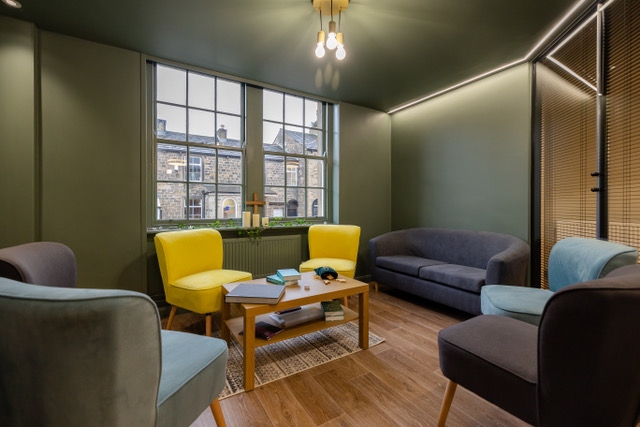 A prayer room was key, too. The church was being increasingly inspired by the Renew Wellbeing movement spearheaded by Baptist pastor Ruth Rice. A Renew café would therefore become one of the first initiatives in the House.
A prayer room was key, too. The church was being increasingly inspired by the Renew Wellbeing movement spearheaded by Baptist pastor Ruth Rice. A Renew café would therefore become one of the first initiatives in the House.
‘It was important for us to have prayer right at the very heart,’ explains Phil.
‘But beyond that, we didn't know exactly what a lot of the rooms would be used for.’
It has been a ‘one step at a time journey’ since The House opened in September 2022 – but due to its other activities, it was able to hit the ground running.
Alongside Renew and its rhythms of prayer, the church has led several teaching series there, including Alpha and a Big Life discipleship group. Ruth Howard-Birt, the CAP Centre manager, has met with clients there and the foodbank operates out of the House too.
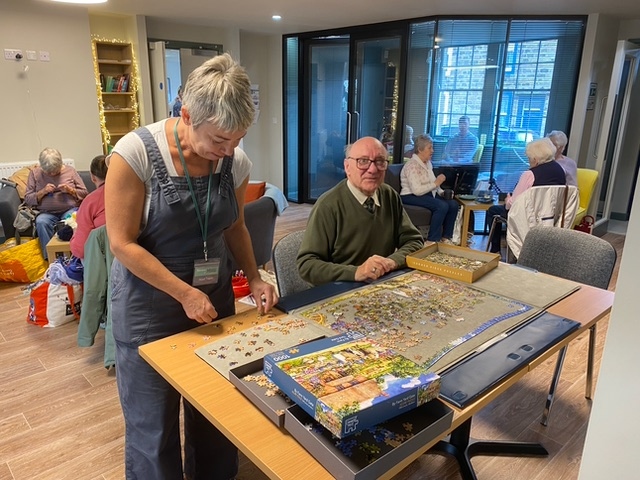 A typical morning would see the Renew space in the House lounge area, the foodbank distributing to clients in an adjoining room and the CAP manager meeting clients in another attached room.
A typical morning would see the Renew space in the House lounge area, the foodbank distributing to clients in an adjoining room and the CAP manager meeting clients in another attached room.
Having them all there operating at the same time 'gives a real sense of integration between the ministry and mission with a good deal of overlap', says Phil. 'Integration of these activities has become a really significant aspect of our outreach.'
In the new year, the church is planning on having a financial inclusion worker funded by Trussell Trust working alongside the foodbank.
There is a weekly new mums and babies group (Mini Hands), a Kintsugi Hope course and a CAP money management course which also run out of the House.
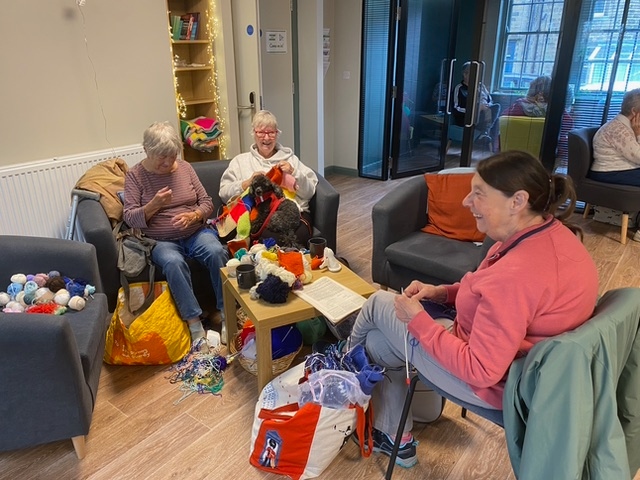 Phil says the transformation has impressed neighbours who are pleased the building has a new lease of life again. In the first few months people who would not come to a typical Sunday service have been welcomed in The House.
Phil says the transformation has impressed neighbours who are pleased the building has a new lease of life again. In the first few months people who would not come to a typical Sunday service have been welcomed in The House.
‘The expansion of the vision and activities of Skipton Baptist Church has shown in a small way how to reach out to the surrounding community of Skipton in a way which transforms people’s lives practically as well as spiritually,' he writes on the church's website.
'The church regularly sees this in stories and testimonies of those who have recently come to faith. Since expanding our vision, we have seen many more people come to know Jesus and a good number of baptisms.'
'We have been open for around a year now,' he adds, 'and we have seen a number of people dip their toes into the church community through the work in the House. Some have since started with other aspects of the church’s life such as Alpha or Kintsugi Hope courses, or even coming along to services.
'Those first itinerant evangelists, Hogg and Jones would have been pleased, I think.'
Baptist Times, 07/12/2023